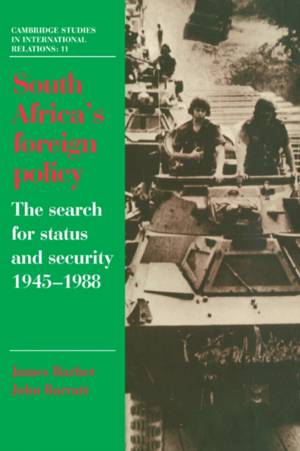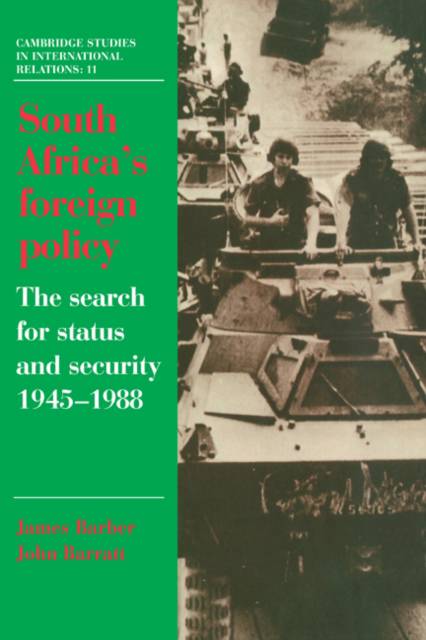
Bedankt voor het vertrouwen het afgelopen jaar! Om jou te bedanken bieden we GRATIS verzending (in België) aan op alles gedurende de hele maand januari.
- Afhalen na 1 uur in een winkel met voorraad
- In januari gratis thuislevering in België
- Ruim aanbod met 7 miljoen producten
Bedankt voor het vertrouwen het afgelopen jaar! Om jou te bedanken bieden we GRATIS verzending (in België) aan op alles gedurende de hele maand januari.
- Afhalen na 1 uur in een winkel met voorraad
- In januari gratis thuislevering in België
- Ruim aanbod met 7 miljoen producten
Zoeken
South Africa's Foreign Policy
The Search for Status and Security, 1945 1988
James Barber, John Barratt
€ 72,45
+ 144 punten
Uitvoering
Omschrijving
This book was originally published in 1990, as part of the Cambridge Studies in International Relations series, a joint initiative of Cambridge University Press and the British International Studies Association (BISA). In a far-reaching and fascinating study of foreign policy in South Africa, Barber and Barratt begin by looking at the post-war challenges faced by the government of South Africa, and the effect that the establishment of apartheid also had on foreign policy. Their study then goes on to explore the effects that Sharpeville, and the repercussions of various periods of success and upheaval, had on South African international relations up until the late 1980s. This exceptionally thorough study of South African foreign policy and the factors influencing its formation will be of interest to scholars of South Africa in particular, and international relations and policy making in general.
Specificaties
Betrokkenen
- Auteur(s):
- Uitgeverij:
Inhoud
- Aantal bladzijden:
- 410
- Taal:
- Engels
- Reeks:
- Reeksnummer:
- nr. 11
Eigenschappen
- Productcode (EAN):
- 9780521388764
- Verschijningsdatum:
- 19/04/1990
- Uitvoering:
- Paperback
- Formaat:
- Trade paperback (VS)
- Afmetingen:
- 158 mm x 236 mm
- Gewicht:
- 712 g

Alleen bij Standaard Boekhandel
+ 144 punten op je klantenkaart van Standaard Boekhandel
Beoordelingen
We publiceren alleen reviews die voldoen aan de voorwaarden voor reviews. Bekijk onze voorwaarden voor reviews.









